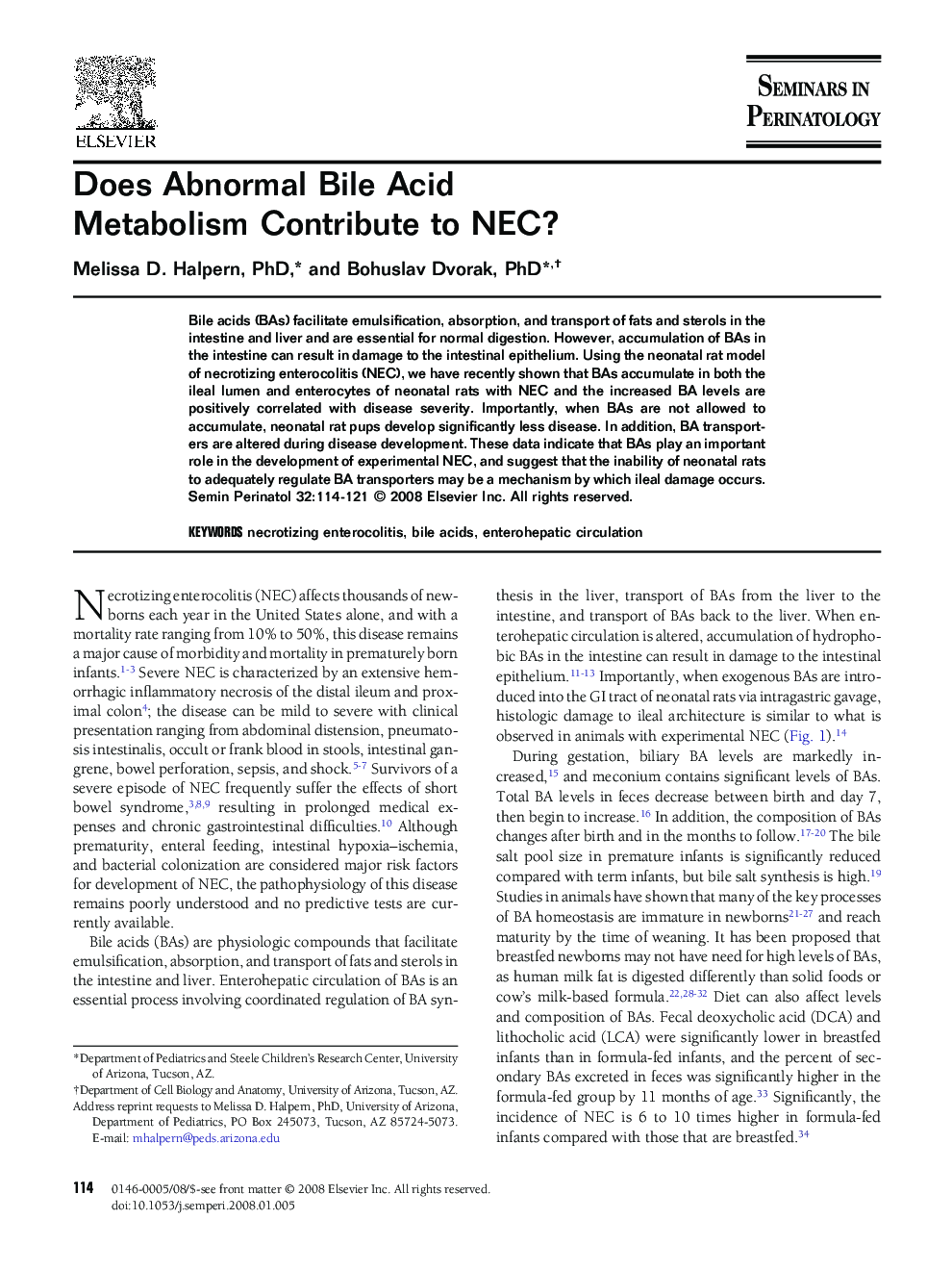| Article ID | Journal | Published Year | Pages | File Type |
|---|---|---|---|---|
| 3836689 | Seminars in Perinatology | 2008 | 8 Pages |
Bile acids (BAs) facilitate emulsification, absorption, and transport of fats and sterols in the intestine and liver and are essential for normal digestion. However, accumulation of BAs in the intestine can result in damage to the intestinal epithelium. Using the neonatal rat model of necrotizing enterocolitis (NEC), we have recently shown that BAs accumulate in both the ileal lumen and enterocytes of neonatal rats with NEC and the increased BA levels are positively correlated with disease severity. Importantly, when BAs are not allowed to accumulate, neonatal rat pups develop significantly less disease. In addition, BA transporters are altered during disease development. These data indicate that BAs play an important role in the development of experimental NEC, and suggest that the inability of neonatal rats to adequately regulate BA transporters may be a mechanism by which ileal damage occurs.
